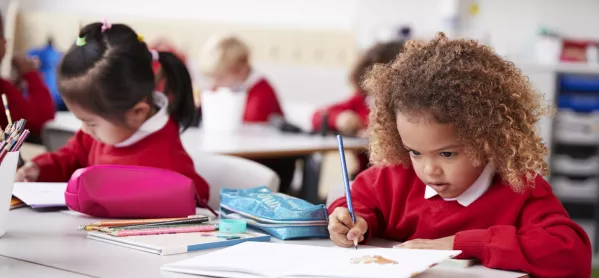Schools will not be penalised if they fail to offer a “broad and balanced” curriculum when they reopen to more pupils from 1 June, the government has said.
Staff should use “best endeavours” to support pupils who return next month, as well as those remaining at home, according to guidance from the Department for Education (DfE).
However, the government has confirmed that “no school will be penalised if they are unable to offer a broad and balanced curriculum” at this time.
Coronavirus: 7 things reopening schools are told they need
DfE guidance: Sneezing and queuing - new rules for reopening schools
Evidence: DfE has ‘low confidence’ pupils won’t spread Covid-19
Geoff Barton, general secretary of the Association of School and College Leaders (ASCL), welcomed the decision, adding that “it would not be realistic to define and set a minimum standard in these circumstances”.
“We agree with the Department for Education’s decision that no school will be penalised if they are unable to offer a broad and balanced curriculum to their pupils during a phased reopening of schools,” Mr Barton said.
“It will not be business as normal in schools, both because of the protective measures which will need to be implemented, and because children will need to be supported in returning to the school environment.”
The DfE guidance states that schools “continue to be best placed to make decisions about how to support and educate all their pupils during this period, based on the local context and staff capacity”.
It adds that, where year groups are returning to school, the DfE would expect school leaders and teachers to:
- Consider their pupils’ mental health and wellbeing and identify any pupil who may need additional support so they are ready to learn.
- Assess where pupils are in their learning, and agree what adjustments may be needed to the school curriculum over the coming weeks.
- Identify and plan how best to support the education of high needs groups, including disadvantaged pupils, and SEND and vulnerable pupils.
- Support pupils in Year 6, who will need both their primary and secondary schools to work together to support their upcoming transition to Year 7.





